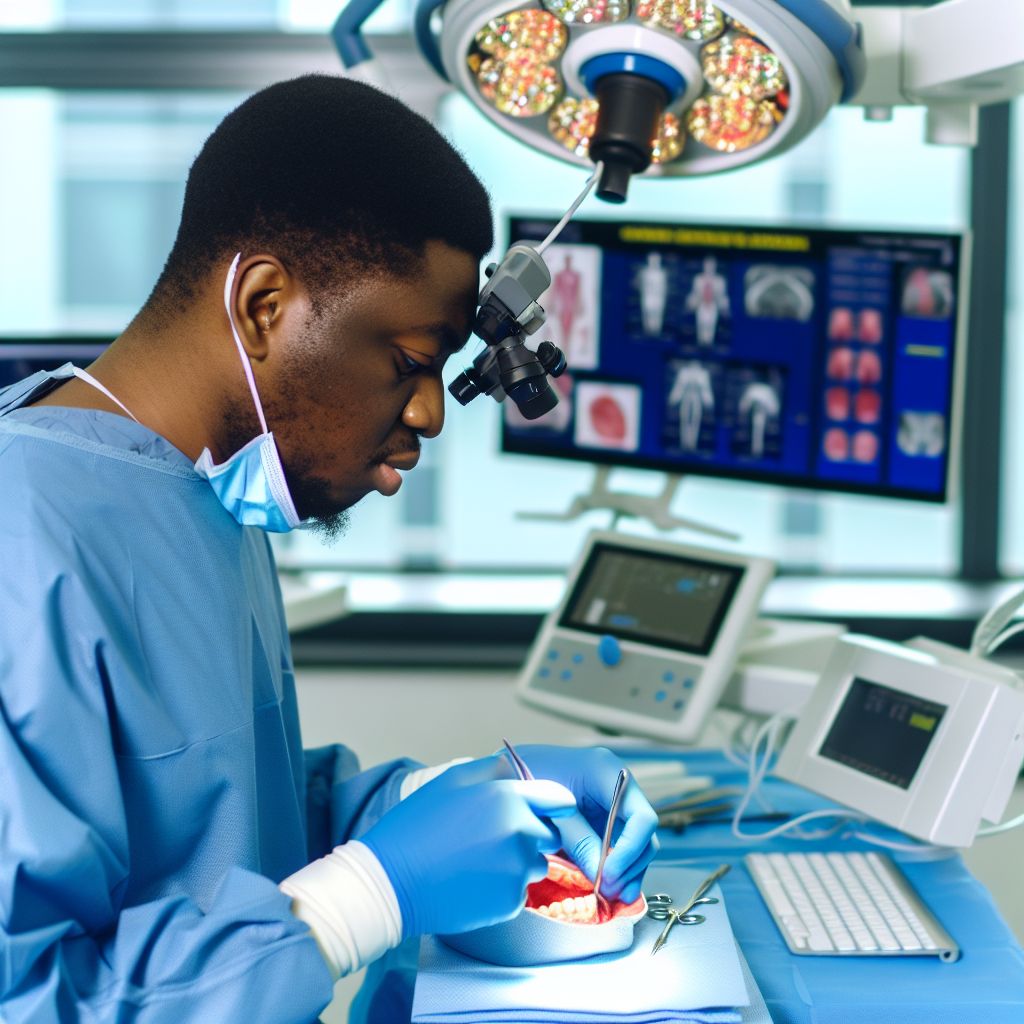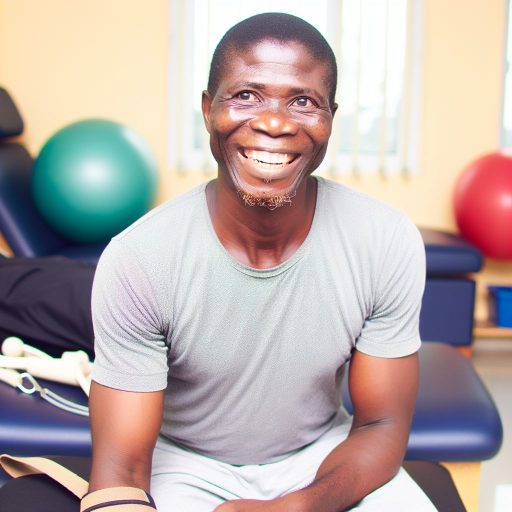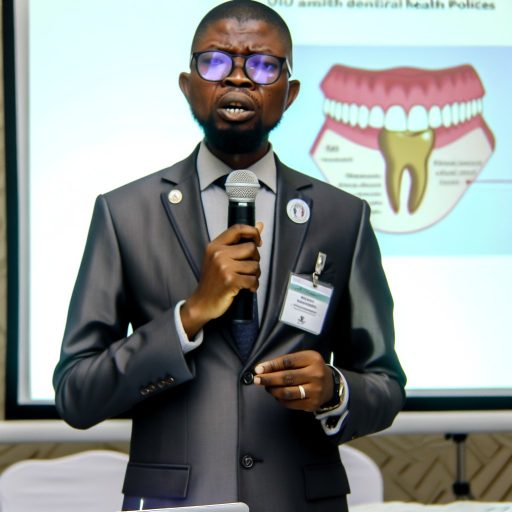Introduction
Oral and maxillofacial surgery in Nigeria has a rich history dating back decades.
This field plays a vital role in addressing various dental and facial issues.
With the increasing demand for advanced surgical procedures and technologies, there is a need for continuous innovation in this specialty.
The specialty must meet the growing challenges effectively.
Overview of Traditional Practices
In Nigeria, traditional practices have played a significant role.
These methods are deeply rooted in cultural beliefs.
They have been passed down through generations.
- Traditional healers often use herbal remedies and spiritual rituals to treat oral and maxillofacial problems.
- Beliefs surrounding the causes of these issues may involve supernatural forces or ancestral spirits influencing the health of the patient.
- Patients may seek the help of traditional practitioners due to cultural preferences, lack of access to modern healthcare, or distrust in Western medicine.
Discussion of Traditional Methods and Beliefs
The traditional methods employed in Nigerian oral and maxillofacial surgery vary greatly from modern medical practices.
These methods are sometimes viewed as alternative or complementary to conventional treatments.
- Some traditional healers perform rituals and ceremonies to channel healing energies for the patient.
- Herbal concoctions and poultices are commonly used to alleviate pain, reduce swelling, or promote healing in the oral and facial regions.
- Scarification and other forms of body modification may be part of traditional practices to treat oral and maxillofacial conditions.
Advancements Needed to Improve Oral and Maxillofacial Surgery
While traditional practices have their place in Nigerian culture, there is growing recognition of the need for advancements.
These advancements aim to improve patient outcomes and reduce risks.
- Modern medical technologies and techniques offer greater precision, faster recovery times, and improved long-term results.
- Training healthcare professionals in evidence-based practices can enhance the quality of care provided to patients in need of oral and maxillofacial surgery.
- Collaboration between traditional healers and modern healthcare providers can lead to a more integrated approach to patient care, combining the best of both worlds.
By embracing innovation and advancements in oral and maxillofacial surgery, Nigeria can ensure that patients receive the highest level of care.
This approach supports optimal health outcomes.
Technological Innovations in Nigerian Oral and Maxillofacial Surgery
Exploration of cutting-edge technologies is advancing Nigerian oral and maxillofacial surgery.
Significant advancements in technology have occurred in this specialized field in Nigeria.
These innovations greatly enhance the efficiency, accuracy, and outcomes of surgical procedures.
Below are examples of innovative tools, equipment, and techniques transforming the field.
- 3D Printing technology is used to create customized implants and prosthetics for patients.
- Robot-Assisted Surgery involves robots assisting surgeons in performing delicate procedures precisely.
- Virtual Reality simulations help surgeons plan and practice complex surgeries before operating.
- Augmented Reality overlays digital images onto real-world views to provide enhanced visualization.
- Laser Technology enables precise cutting, tissue removal, and coagulation during surgeries.
- Computer-Assisted Navigation systems guide surgeons to increase accuracy and reduce surgical risks.
These technological advances have transformed oral and maxillofacial surgical practice in Nigeria.
They allow for procedures that are more precise, efficient, and safer for patients.
As technology evolves, expect more groundbreaking innovations to revolutionize this surgical field further.
Discover More: Preventive Dentistry and Pregnancy: Key Tips
Collaborations and Partnerships in Oral and Maxillofacial Surgery
Collaborations between Nigerian oral and maxillofacial surgeons and international organizations have advanced the field.
These partnerships facilitate the sharing of knowledge and resources.
They also contribute to the growth of research in oral and maxillofacial surgery.
One key benefit of collaborations is the exchange of expertise between surgeons.
Nigerian surgeons learn from international experts in the field.
They gain insights and techniques to apply in their practice.
International organizations provide access to advanced technology and equipment.
This technology may not be readily available in Nigeria.
Such access helps Nigerian surgeons stay updated with the latest advancements.
Ultimately, this benefits patients with better treatment options.
Collaborations create opportunities for joint research projects.
Nigerian surgeons and international partners work together on research studies.
They leverage their expertise and resources to address pressing issues.
This collaboration contributes significantly to the knowledge base in the field.
Partnerships open doors for Nigerian surgeons to attend global conferences.
They participate in workshops and international training programs.
Exposure to different perspectives broadens their horizons.
This experience inspires innovation in their own work.
Collaborations enhance networking opportunities among surgeons worldwide.
Transform Your Career with Expert Guidance
Get personalized mentorship consulting that’s tailored to your unique path. Our expert advice is actionable and exclusive.
Get StartedThey connect with colleagues to share best practices and seek advice.
This network fosters professional growth and development.
Collaborations between Nigerian oral and maxillofacial surgeons and international organizations play a crucial role in advancing the field.
Working together, surgeons exchange knowledge, resources, and ideas.
This collaboration improves patient care and drives innovation in oral and maxillofacial surgery.
Uncover the Details: Common Child Dental Issues in Nigeria
Importance of Ongoing Training and Education
Continuing education is essential for oral and maxillofacial surgeons to keep pace with healthcare changes.
It allows them to stay current with emerging trends, technologies, and techniques in the field.
By participating in ongoing training programs, surgeons can enhance their knowledge, skills, and expertise.
This ultimately improves patient outcomes.
Opportunities for Professional Development
In Nigeria, oral and maxillofacial surgeons have various avenues to advance their careers and specialize in innovations.
One such opportunity is attending professional conferences and seminars.
Experts in the field share their experiences and knowledge at these events.
These platforms allow surgeons to learn about the latest research findings, surgical techniques, and treatments.
Specialization in Advanced Surgical Practices
Surgeons aiming to specialize can join fellowship programs focusing on advanced surgical techniques and procedures.
These programs provide in-depth training in areas such as craniofacial surgery, temporomandibular joint disorders, and facial cosmetic surgery.
Completing a fellowship helps surgeons hone their skills and expertise in specific interests.
This enhances the quality of care they provide to patients.
Commitment to Continuous Learning and Improvement
To stay at the forefront of oral and maxillofacial surgery, surgeons must embrace continuous learning.
This mindset involves seeking new learning opportunities regularly.
Surgeons should stay informed about the latest advancements in the field.
They also need to participate actively in professional development activities.
Ongoing training enhances surgeons’ professional skills and advances the specialty.
Benefits of a Collaborative Learning Environment
Beyond formal training programs, surgeons in Nigeria benefit from collaborative learning environments.
Such environments allow them to engage with colleagues and share experiences.
They learn from one another by exchanging ideas, best practices, and innovative patient care approaches.
Collaborative learning fosters camaraderie and professional growth among surgeons.
Working together helps surgeons leverage each other’s strengths and expertise.
This collaboration improves the quality of care they provide.
Enhancing Patient Outcomes through Lifelong Learning and Collaboration
Ongoing training and education are key to professional development of surgeons in Nigeria.
By engaging in continuous learning and seeking specialization opportunities, surgeons expand their knowledge.
They also enhance their skills, which leads to improved patient outcomes.
Embracing lifelong learning and collaboration drives excellence in oral and maxillofacial surgery.
Discover More: Introduction to Preventive and Social Medicine in Nigeria

Patient Care and Outcomes
- Examining how innovations in oral and maxillofacial surgery have improved patient care and outcomes in Nigeria.
- Case studies or examples of successful surgeries using innovative techniques.
Innovations in Patient Care
In recent years, the field of oral and maxillofacial surgery in Nigeria has seen significant advancements in patient care.
These innovations have not only improved the quality of care but also enhanced patient outcomes.
One of the key innovations in patient care is the implementation of minimally invasive surgical techniques.
These techniques allow for less trauma, reduced scarring, and faster recovery times for patients undergoing oral and maxillofacial procedures.
Another innovation that has transformed patient care is the use of 3D imaging technology.
This technology enables surgeons to have a more detailed and accurate view of the patient’s anatomy, leading to precise surgical planning and execution.
Furthermore, advancements in anesthesia and pain management techniques have greatly improved the patient experience during and after surgery.
This has contributed to a higher level of patient satisfaction and overall better outcomes.
Successful Case Studies
There have been several successful case studies in Nigeria where innovative techniques in oral and maxillofacial surgery have led to excellent outcomes for patients.
One such example is a complex jaw reconstruction surgery using virtual surgical planning.
In this case, a patient who had suffered from a traumatic injury resulting in severe jaw deformity underwent a successful surgery that restored both function and aesthetics.
The use of virtual surgical planning allowed the surgical team to precisely plan the procedure, leading to a successful outcome.
Another example is the use of tissue engineering in the reconstruction of facial defects.
By utilizing bioengineered tissues, surgeons can now restore facial aesthetics in a more natural and effective way, ultimately improving patient outcomes.
These case studies highlight the effectiveness of innovative techniques in oral and maxillofacial surgery in Nigeria and serve as a testament to the continuous advancements in patient care and outcomes in the field.
Learn More: Biomedical Technology Certification in Nigeria
Future Directions and Challenges in Oral and Maxillofacial Surgery in Nigeria
Predictions for the Future of Oral and Maxillofacial Surgery in Nigeria
- The field of oral and maxillofacial surgery in Nigeria is expected to continue to grow rapidly.
- Advancements in technology will play a key role in improving surgical techniques and patient outcomes.
- More specialized training programs will be developed to meet the increasing demand for skilled professionals.
- Collaboration with international organizations and experts will enhance knowledge exchange and skill development.
- Research in innovative treatments and surgical approaches will lead to improved patient care and outcomes.
- Telemedicine and virtual consultations will become more common, especially in remote areas of the country.
Identification of Challenges and Obstacles
- Limited access to advanced technology and equipment in many healthcare facilities.
- Lack of specialized training programs and mentorship opportunities for young surgeons.
- Inadequate funding for research and development of new surgical techniques.
- Shortage of skilled healthcare professionals in the field of oral and maxillofacial surgery.
- Industry regulations and bureaucratic processes may hinder the adoption of new innovations.
- Socio-economic disparities limit access to quality healthcare for marginalized populations.
While the future of oral and maxillofacial surgery in Nigeria holds great promise, significant challenges remain.
By actively working towards overcoming these obstacles and embracing new innovations, the field can continue to improve patient care.
These efforts will contribute to the overall advancement of healthcare in the country.
Advancements Transforming Oral and Maxillofacial Surgery in Nigeria
Looking back at innovations in Nigerian oral and maxillofacial surgery reveals their immense impact.
These advancements have significantly improved patient care across many regions.
It remains essential to push boundaries continually in this medical field.
Striving for progress ensures patients receive the best possible treatment consistently.
Encouraging research drives the discovery of new techniques and methods.
Collaboration among practitioners enhances the sharing of knowledge and expertise.
Investment in new technology promises further improvements in surgical outcomes.
Overall, both patients and practitioners stand to benefit greatly from these efforts.
Additional Resources
Achieving a robust mentoring and research capacity program in a …
Study protocol for a pilot quasi-experimental study on oral health …




